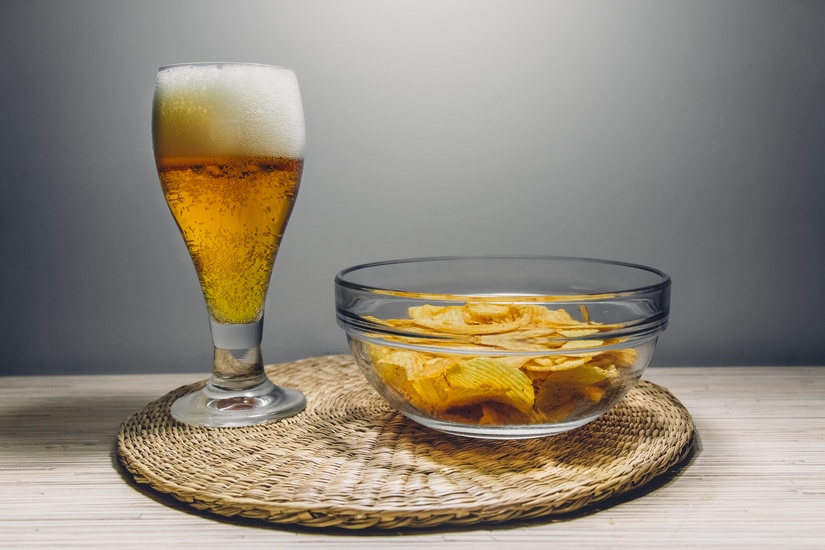Without your knowing it, testosterone killers are quietly causing Low T. By avoiding these big mistakes you can boost your testosterone, naturally. Here are the the top 10 things that reduce testosterone in men…
Stress
Increased stress is a surefire route to reduced testosterone. When under a lot of stress, your body releases high levels of cortisol, the stress hormone. Cortisol blocks the effects of testosterone.1 If you face chronic stress, you could see your T levels sabotaged over the long term. You should make lifestyle choices that support a less stress, and explore alternative methods of stress reduction. In our modern world, this may seem challenging, but your testosterone levels are counting on it.

Lack of Exercise
One of the easiest ways to boost testosterone production is with exercise. Simply put, exercise triggers a flood of testosterone.2 Lack of exercise? Then you’re on the fast track to Low T. When you regularly exercise, you’re telling your body you need more testosterone. And your body responds by supplying what it needs. Testosterone, in turn, helps you build muscle and burn fat. Short, intensive exercise sessions – like interval training and weight lifting – have found more positive results than long-duration, lower-intensity activities, like running and cycling. Keep your activity up and your testosterone will follow!

Poor Diet
Diet impacts your body in so many ways, including your testosterone levels. Low protein, lack of healthy fats, and high sugar intake – all these foods lead to Low T. So how to make healthy food choices? Be sure to eat enough protein, which can stimulate testosterone levels with exercise. Choose healthy fats, like avocados, nuts, and olive oil – but don’t avoid fat all together: low-fat diets actually reduce testosterone! Eat a balanced amount of carbohydrates – but don’t overdo it, or they will quickly convert to sugars and then into body fat. Then testosterone declines, as excess body fat produces more estrogen.3

Nutritional Deficiencies
Even with a “healthy” diet, most people are not intaking enough nutrients to reach peak efficiency and increase testosterone. The combination of poor food choices, over-processed foods, and poor farming practices result in a food system that provides substandard nutritional support.4 Supplements fill in the nutritional gaps in our diet – from the components of your daily multivitamins, like zinc (often deficient in men with Low T) – to the nutritional support of supplements, like testosterone boosters or immunity enhancers. Explore what supplements would benefit the nutritional needs of your diet and lifestyle.

Obesity
If you want to ramp up your testosterone, one of the best ways is to slim down. A man’s waist circumference is the single strongest predictor of low T levels, as confirmed in a study of 1,822 men by the New England Research Institutes.5 It’s even more accurate than age or overall health! NERI researchers also found that men who became overweight or obese experienced a more rapid drop in T levels than those who kept a normal weight.

Alcohol
As your liver processes the alcohol, it produces compounds that inhibit the release of testosterone.6 Fortunately, just one or two drinks results in only minor, temporary dips in your testosterone levels, but avoid getting drunk or drinking heavily several times a week. Also, beer is particularly troubling. Hops, a key ingredient in most beer, contain more estradiol (the most potent form of female estrogen) than any other plant on earth. So choose to drink lightly, and select your beverages wisely.

Medications
The side effects of many popular medications may be leading to this widespread decline in testosterone levels. Some commonly prescribed medications, such as statin drugs used to lower cholesterol, are indirectly contributing to Low T.7 And as men age, many often take medications which can interfere with nutrient absorption.8 In addition, a lot of estrogen-based medications used by women ends up in our water supply, which unknowingly impacts men.9 It is essential to be aware of your intake of medications and their potentially unintended impacts.

Lack of Sex
Sex is a natural way of keeping your endocrine system stimulated and boosting your T levels.10 With a lack of sex, your body is missing out on the opportunity for these natural posts in testosterone. In fact, simply having an erection can push testosterone throughout your body. This even works for elderly men. One study showed that elderly men who had more sex also had higher testosterone. As your T levels increase, you’ll want still more sex in a natural cycle.

Female Hormone Mimickers
Female hormone mimickers (exenoestrogens) are found almost everywhere: from skincare and personal care, to household cleaning and outdoor products. In addition, they are all too common in our food – commercially raised meats and poultry, soy products, flax seed, as well as food wraps and plastics. These feminizing chemicals mimic estrogen, which of course limits the body’s production of testosterone. In one study, atrazine, a feminizing chemical in a commonly used weed killer, affected animals at doses as small as 0.1 parts per billion.11 Be cautious around such products, and choose organic meats and natural body care products.

Age
One inescapable influence on your testosterone level is age. According to the Mayo Clinic, “Testosterone peaks during adolescence and early adulthood. As you get older, your testosterone level gradually declines – typically about 1 percent a year after age 30.”12 By the time you’re 60, your testosterone levels are 1/3 of what you had in your 20s. By the time you hit 80, you may have only 20% of what you had when you were young. However, normal aging is only one component of the many lifestyle factors that lower testosterone. It is still in your control to boost your T at any age!










